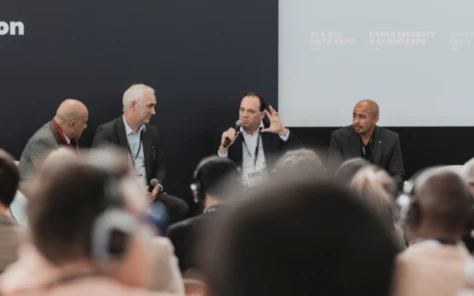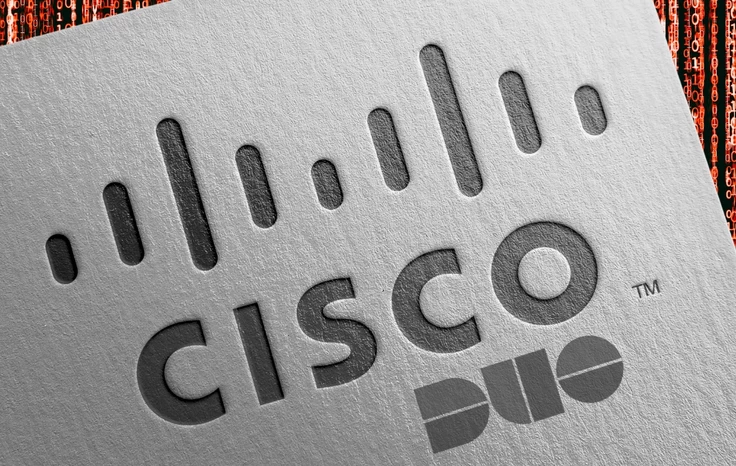What is Health Technology? Definition, Benefits, Challenges
Top 10 Most Successful Women Entrepreneurs in the World

Starting up a business from the ground up is no easy task. Not only does it require years of hard work and dedication, but it also requires unmatched entrepreneurship and a drive for success.
For women in tech, however, the challenge of starting a business doubles.
From the funding gap to stereotyping, bias and discrimination, women entrepreneurs face multiple barriers to success that their male counterparts simply don’t have to put up with.
The challenges of being a women entrepreneur
The gender funding gap
It's a well-documented fact that women-led businesses receive significantly less funding than those with men at the helm.
According to The Gender Index, Women attracted less than 12% of the 1.3 million investments made in UK firms in 2021 – that equates to just 0.1% of UK private equity investments (by value) and 0.5% of UK venture capital investments (by value).
Read: Why Female-led AI Startups are Being Left out of the AI Boom
Research in 2022 by startups.co.uk paints a similar picture, revealing that businesses with male founders or co-founders receive nearly seven times more funding on average than businesses owned by female entrepreneurs.
This can be due to unconscious bias among investors, who tend to be mostly male, and who may be more comfortable investing in people they perceive as similar to themselves.
A lack of female entrepreneurs
Navigating the business world is often easier with a strong network and access to experienced mentors. These connections are crucial for getting advice, sharing experiences, and making those all-important connections,
Unfortunately, these networks have traditionally been male-dominated, making it harder for women to find mentors who can provide valuable guidance and connections.
Today, the business world can still be a boys' club, and the lack of family role models can discourage aspiring women entrepreneurs, as they may not see a clear path to success led by someone who looks like them.
Work-life balance
The burden of work-life balance also falls disproportionately on women. They often carry a larger share of childcare and domestic responsibilities, making it incredibly challenging to dedicate the long hours often required to get a startup off the ground.
The limited availability of childcare options, especially for non-traditional work hours, can also force female entrepreneurs to choose between prioritizing their business or their family's immediate needs.
This constant pressure can lead to feelings of guilt, and stress, and ultimately, hinder a woman entrepreneur's ability to fully dedicate herself to her business goals.
This burden doesn't just impact the time available to women entrepreneurs. There are multiple studies showing that the mental and emotional toll of constantly juggling responsibilities can lead to burnout.
Breaking through the barriers
Despite these challenges, there are more and more resources available to help women entrepreneurs succeed.
A growing number of organizations and investors are specifically focused on supporting female-led businesses, and Mentorship programs designed for women entrepreneurs are providing much-needed guidance and connections.
Read More: International Women's Day 2024: Celebrating Women in Tech
There are also angel investor groups specifically focused on funding women-led businesses, and there are mentorship programs designed to connect women with experienced businesswomen.
Still, the journey for women entrepreneurs is undeniably challenging. However, with increased awareness, targeted support systems, and the unwavering determination of women themselves, these barriers are being chipped away.
Most successful women entrepreneurs
With so many barriers to success for women entrepreneurs today, it’s more important than ever before to spotlight women who can overcome those barriers and reach incredible heights of success in the world of business.
In this list, we’re counting down ten of the most successful women entrepreneurs in history, exploring how each of them found success and the barriers they overcame in the process.
Sarah Hawley
Sarah Hawley is a serial entrepreneur – having founded 8 companies since 2009 and had three successful, million-dollar exits. She helped build Grow My Team from the ground up, launching an incredibly successful recruiting company dedicated to hiring and integrating the best remote talent on a global scale. Today, however, she’s best known for her role as the CEO and Founder of Growmotely – the first global platform for sourcing, growing and leading remote teams. Hawley’s journey with remote working began long before that, though. Sarah turned all her companies remote in 2014, which was a move that would set her on a trajectory that finds her now at the forefront of the remote work meets conscious culture and conscious leadership movement. A move that now has the potential to impact people all across the globe.
Recognized as the IFA Thought Leader of the Year, Sarah was also named one of Melbourne’s Top 100 most influential, inspiring and creative citizens by The Age, and listed in the Top 50 Female Entrepreneurs under 40 by Shoestring. She has also held board positions with several not-for-profit organizations including Project Gen Z, Project Futures, Entrepreneurs Organization, the Association of Financial Advisers and the Institute for Global Women Leaders.
Anne Wojcicki
Anne Wojcicki is the co-founder and CEO of 23andMe, a leading personal genomics company. Launched in 2006, 23andMe offers direct-to-consumer genetic testing, allowing individuals to explore their ancestry and gain insights into potential health risks. Since then, Wojcicki has steered 23andMe towards financial stability through a combination of consumer testing and partnerships, ensuring the company's long-term impact. She also recognized the power of crowdsourced data. 23andMe's large customer base allows for large-scale genetic studies, aiding researchers in developing new treatments and therapies.
23andMe, under Wojcicki's leadership, has become a leader in making genetic testing affordable and widely available. The vast amount of genetic data collected by 23andMe is also accelerating research in areas like personalized medicine and drug development. Wojcicki’s work is not only empowering individuals but also accelerating scientific progress in healthcare, solidifying her place as a highly successful woman entrepreneur in the tech industry.
Guan Dian
Guan Dian is the co-founder of Patsnap, which provides research and development (R&D) analytics powered by AI and machine learning. Dian co-founded Patsnap in 2007, which started as a small team and grew into a leading patent analytics company. Patsnap's technology helps businesses gain insights into markets, technologies, and competitors, making informed R&D decisions. As the Senior Vice President (SVP) for Asia Pacific, Dian was instrumental in establishing Patsnap's presence in this key region. This included securing the company's first Chinese clients, a crucial step for its international growth that transformed it into a dominant force in the R&D analytics market.
Under Dian’s leadership, Patsnap has grown to serve over 12,000 customers globally, attracting major players like NASA, IBM, and Lego. Her focus on a specific market need, combined with her ability to build relationships and leverage technology, solidifies her position as one of the most successful women entrepreneurs in tech. Patsnap achieved unicorn status in 2021 and now has a valuation of over $1 billion.
Susan Wojcicki
Susan Wojcicki is a famous female entrepreneur in the tech world, most recognized for her leadership as the former CEO of YouTube (2014-2023). Her journey to success is interwoven with the rise of Google and YouTube itself. Wojcicki played a crucial role in Google's early days, renting out her garage to serve as the company's first office space in 1998, and later became Google's 16th employee. She played a key role in building Google's advertising business, including AdSense and Google Analytics, and her understanding of user behaviour was instrumental in making these platforms what they are today.
Wojcicki also recognised the potential of YouTube and played a crucial role in Google's acquisition of the platform in 2006 for $1.65 billion, a deal that proved highly successful. As YouTube's CEO, Wojcicki oversaw a period of significant expansion, making it a dominant platform for online video content. Her leadership at YouTube transformed it into a global phenomenon, fostering a creative environment for content creators while establishing revenue streams. She implemented strategies to attract creators, monetize content, and navigate various content moderation challenges. Susan Wojcicki's influence on the tech industry is undeniable. Her contributions to Google and YouTube's success solidify her position as one of the most impactful women entrepreneurs in the history of tech.
Sheryl Sandberg
Sheryl Sandberg is a force to be reckoned with in the tech industry. She's not only a highly successful entrepreneur but also a prominent author and advocate for women in leadership. Sandberg's most recognizable role was as the Chief Operating Officer (COO) of Meta from 2008 to 2022. While Sheryl Sandberg stepped down from her COO role at Meta in 2022, her influence on the tech industry and her work towards gender equality continue to be significant. Beyond Facebook, Sandberg is the founder of LeanIn.Org, a non-profit organization that empowers women to achieve their ambitions. She's also the author of two best-selling books, "Lean In: Women, Work, and the Will to Lead" and "Lean In For Graduates," which address gender barriers in the workplace.
As one of the highest-ranking women in the tech industry, Sandberg has paved the way for future generations of female leaders. Her success story serves as a powerful inspiration. Sandberg remains a prominent figure and a role model for aspiring entrepreneurs, particularly women, looking to make their mark in the ever-evolving world of technology.
Reshma Saujani
As the founder of GirlsWho Code, Reshma Saujani's path to success in the tech world is a unique one. While many focus on building companies, Saujani's passion lies in empowering girls and women through technology. She graduated from Yale Law School and initially pursued a career in law and politics running for Congress in 2010 and becoming the first Indian-American woman to do so. It was this experience that instilled in her the importance of advocacy and social change. Saujani launched Girls Who Code to address the lack of female representation in tech, which today has reached over 450,000 girls in all 50 US states and across over 20 countries. The organization offers free coding programs, after-school clubs, and workshops, all designed to introduce girls to the exciting world of technology.
Saujani's work is not just about teaching code; it's about changing perceptions. She encourages girls to embrace risk-taking and overcome the fear of failure, fostering a new generation of confident female tech leaders. Girls Who Code has also inspired similar initiatives around the world, creating a ripple effect that's closing the gender gap in tech on a global scale. Reshma Saujani's success isn't measured by financial gain but by the positive impact she has on women in tech. She is a successful entrepreneur in the sense that she has built a thriving organization that is making a real difference in the world of technology.
Kiran Mazumdar-Shaw
Kiran Mazumdar-Shaw is a name synonymous with Indian biotechnology. She's not just a billionaire entrepreneur, but a visionary leader who built a life sciences powerhouse from scratch. After graduating with a zoology and brewing science degree, she intended to work in fermentation technology, but a chance encounter with an Irish entrepreneur interested in enzymes for textiles led her to start Biocon in 1978 in her garage with just two employees. Biocon began by producing industrial enzymes and gradually expanded into pharmaceuticals, focusing on affordability and accessibility. Under Kiran's leadership, it became a pioneer in biosimilars, making complex generic versions of biologic drugs, and increasing access for patients worldwide.
Today, Biocon has grown into a leading biopharmaceutical company. The company manufacture affordable insulin and generic drugs and conducts cutting-edge research in biosimilars. It also boasts Asia's largest insulin factory and has made significant contributions to global healthcare accessibility. Mazumdar-Shaw has been awarded multiple prestigious awards for her role in this, including the Othmer Gold Medal (2014) and EY World Entrepreneur Of The Year (2020). She continues to be a driving force in the Indian biotech industry and a source of inspiration for future generations.
Anne Boden
Anne Boden is a name synonymous with innovation and a breath of fresh air in the often-stagnant world of FinTech. As the founder and former CEO of Starling Bank, the UK's first mobile-only bank built entirely from scratch, she shattered the glass ceiling and became the first woman in history to establish a bank in the UK. Boden's background wasn't typical for a fintech founder. Holding senior positions at Allied Irish Banks and the Royal Bank of Scotland (RBS), she witnessed the shortcomings of the existing banking system during the financial crisis of 2008. Based on her background in computer science, she saw an opportunity for app-based real-time finance management; Starling Bank has been a key player in this space since 2014.
Unlike many fintech startups of the era prioritizing rapid growth, Boden prioritized profitability and sustainable practices in the early days of Starling. This cautious approach paid off, and Starling became one of the few challenger banks to achieve profitability while serving a loyal customer base. Today Starling Bank is one of just six UK unicorn companies (businesses worth more than one billion dollars) to be female-founded. The fintech firm is also backed by Fidelity Management & Research Company, Goldman Sachs Growth Equity (GS Growth), and Millennium Management (MLP), among many others, and over £584m so far across eight fundraisings. While Anne Boden stepped down as CEO of Starling in June 2023, her legacy as a pioneer in ethical fintech remains strong and has paved the way for a more innovative and inclusive financial future. This makes her one of the most successful women entrepreneurs in history.
Melanie Perkins
Melanie Perkins is an Australian billionaire best known for revolutionising graphic design accessibility with a little company you might have heard of called Canva. While studying graphic design at the University of Western Australia, she recognized the complexity of traditional design software and wanted to do something about it. This sparked the vision for Canva – a platform that allows one to create professional-looking designs, regardless of experience, and she launched the company In 2013 alongside her partner Cliff Obrecht and friend Cameron Adams. Despite initial investor scepticism due to its Australian origin, Canva's user-friendly interface, drag-and-drop functionality, and a vast library of templates gained immense popularity. The company has grown exponentially, boasting over 60 million monthly users and attracting companies like Intel and Zoom to their paid plans.
Today, Canva has achieved a valuation of over $40 billion, solidifying its position as a global leader and a "unicorn" in the tech world. Perkins is also one of the youngest female entrepreneurs to have a tech startup valued at $1 billion and sits among Australia’s richest women today. Canva's global impact and her dedication to empowering others solidify her position as one of the most successful women entrepreneurs in tech.
Whitney Wolfe Herd
Whitney Wolfe Herd is not just one of the most successful women entrepreneurs in history, but one who's actively reshaping the online dating landscape with a focus on women taking charge. The founder, former CEO, and current Executive Chair of Bumble, she launched the now immensely popular dating app known for its "women make the first move" policy to shift the dynamics of the online dating world and bring more people together online. The move would lead to her becoming the youngest woman to ever take a company public in the United States (at age 31) and the world's youngest female billionaire at the time. Under her leadership, Bumble has grown into a global platform with over 100 million users, expanding beyond dating with Bumble BFF for friendships and Bumble Bizz for professional networking.
Before Bumble, Wolfe Herd was actually one of the co-founders of Tinder, another prominent dating app, and played a key role in its initial marketing and user base growth. However, facing alleged harassment, she left Tinder and channelled her experiences into creating Bumble in 2014. Today, Wolfe Herd is a vocal advocate for women's rights and encourages healthy online interactions on her platform. As the youngest woman to take a company public and a self-made billionaire, Wolfe serves as an inspiration for aspiring female entrepreneurs.
























